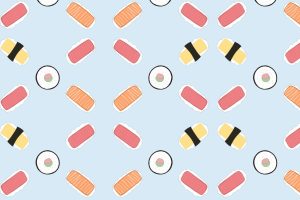Are Pacifiers Better Than Thumbsucking?

Binky or no binky?
It’s no surprise to parents that babies love to suck on things, including fingers, thumbs, hands, or pacifiers. Sucking that’s done outside of feeding time is known as “non-nutritive” sucking, and it’s a very natural reflex. This kind of sucking helps babies relax, feel safe, comfort themselves, and get to sleep. It also helps them practice for nipple feeding.
Since babies are probably going to want (and need) to suck for comfort, should parents offer a pacifier or just let babies discover their hands and fingers on their own?
Thumbsucking Pros:
A thumb is always available. No waking up in the night when it falls out!
Thumbsucking Cons:
Thumbsucking habits may be harder to break because a thumb is always handy.
Pacifiers Pros:
- Studies have shown that pacifiers may decrease the incidence of Sudden Infant Death Syndrome (SIDS) if used during sleep. Pacifiers are recommended for sleep throughout the first year of life by the American Academy of Pediatrics. They can be offered at night and at nap-time for babies who want them, but should not be “forced” on a baby or replaced if they fall out.
- Parents control access to pacifiers, so kids who use pacifiers tend to stop the habit earlier than thumbsucking.
Pacifier Cons:
- Using pacifiers in the first month of life may reduce breastfeeding success, as decreased sucking time on the breast results in a lower milk supply in mom. Also, the baby may become confused with the different nipple shapes, making breastfeeding harder for the baby to get the hang of. According to the APP, it’s okay to wait until breastfeeding is well established before offering a pacifier.
- Pacifiers fall out in the night, which can wake baby up.
- Pacifier use may be associated with ear infections since the continuous sucking motion opens up the auditory tubes, allowing bacteria from the mouth to enter the ear.
- Overall, pacifiers have clear advantages over thumbsucking, especially when it comes to preventing SIDS and making it easier to wean. Some babies refuse pacifiers, so even if you encourage their use during sleep times, don’t push it if your baby is not interested.
- Aim to confine pacifier use to sleep times, and be prepared to wean your child from the pacifier before his or her second birthday. Non-nutritive sucking can cause problems with tooth alignment and a child’s bite, especially if sucking is continued after permanent teeth come in. This is especially true for vigorous suckers.
Sources:
- American Academy of Pediatrics
- “Oral Health Initiative.”
American Speech-Language-Hearing Association - “Pacifier Overuse May Harm Speech Skills, Researchers Find.”
American Dental Association - “Thumbsucking.”
Powered by Bundoo®










